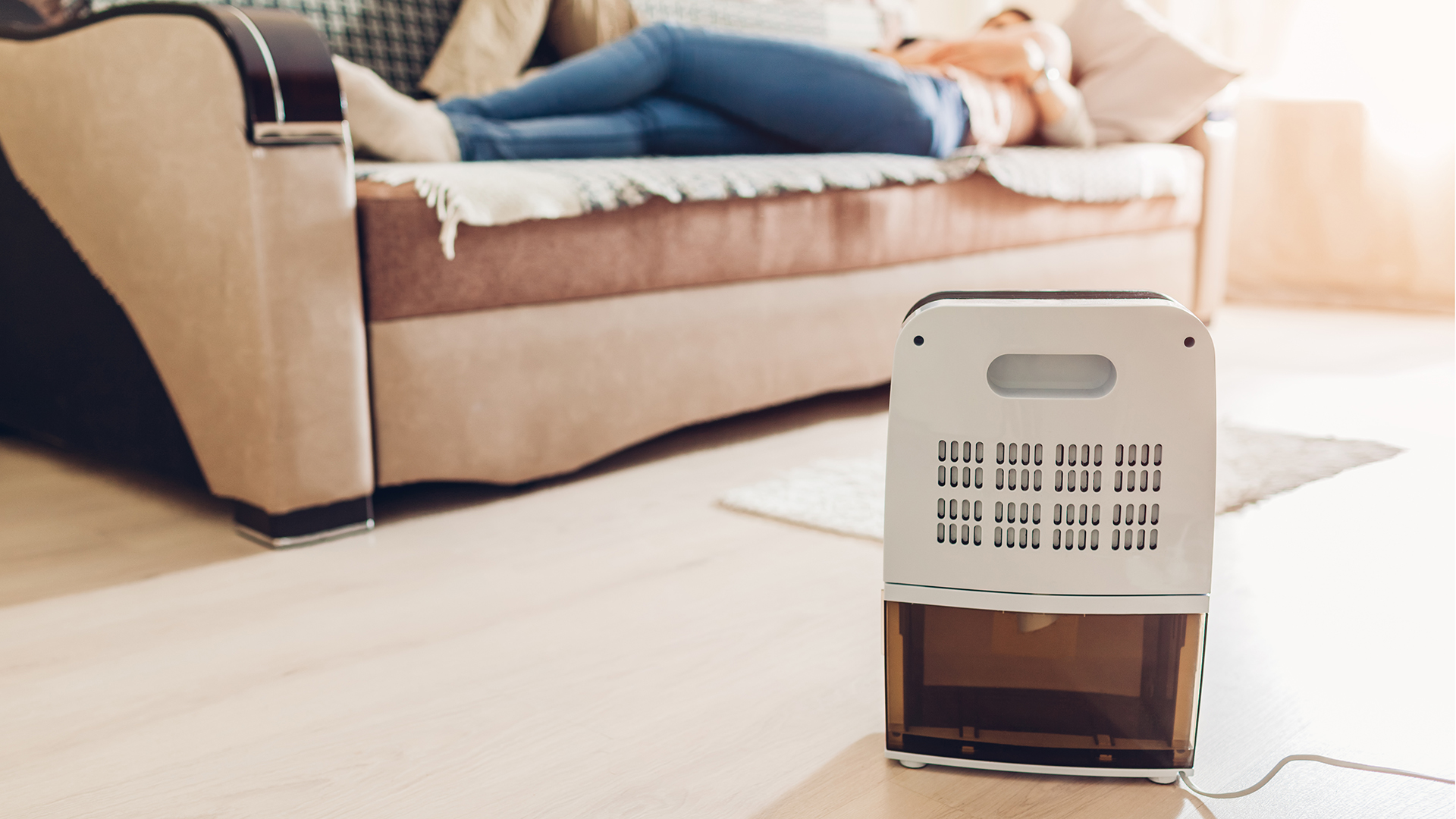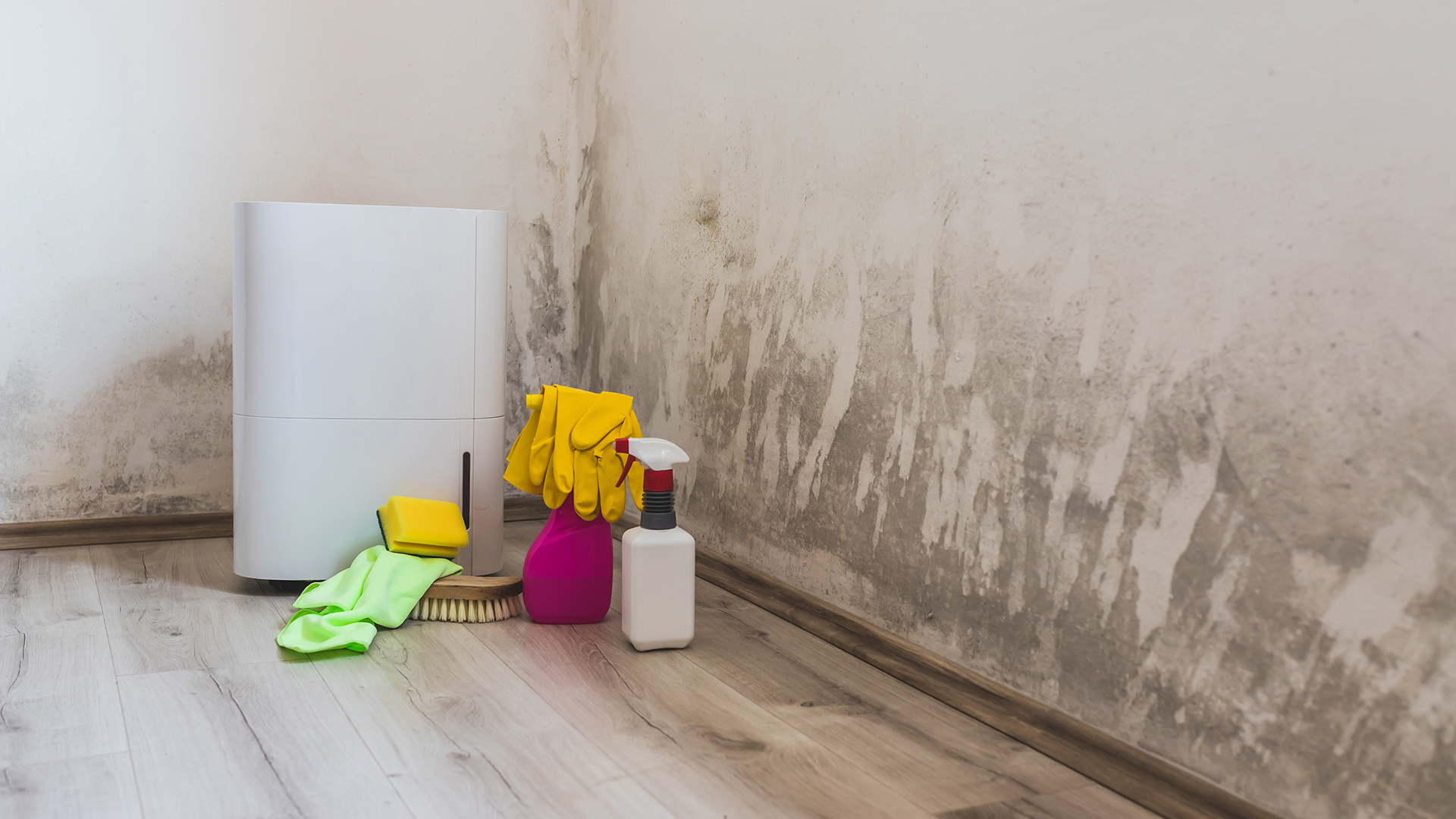Do basements need a dehumidifier?
If you're wondering do basements need a dehumidifier, we've got the answer for you here.

Do basements need a dehumidifier to keep your home free from damp? If you think your home might have an issue with excess moisture in the air, a dehumidifier could be the answer. High levels of humidity can not only cause damage to your property, they can also pose significant health risks. This is due to mold, which can grow rapidly once a surface or appliance has become damp, been exposed to excess moisture or experienced a leak.
In this article, we take a look at why some basements need a dehumidifier and why they might be especially necessary at certain times of the year. In addition, we take a look at the reasons why you might consider using a dehumidifier depending on where you happen to live, as some areas are more naturally prone to experiencing high humidity than others. This can result in condensation and damp patches forming in areas that are sometimes difficult to ventilate, such as basements.
While the best dehumidifiers are a great way to remove mold from a basement, it doesn't necessarily mean that a dehumidifier in a basement will help upstairs. However, there are still plenty of health benefits for using a dehumidifier in your basement.
Do basements need a dehumidifier?
There are several indicators that might suggest your basement needs a dehumidifier, according to building consultant and Certified Indoor Air Quality Professional (CIAQP) Jeffrey C May, who outlines some of the signs in his book My House is Killing Me!.
The first step is to check for a leak or water intrusion, as this could be the source of the dampness. However, it’s also likely that high levels of humidity in your basement are a result of poor air circulation.
• Related: Dehumidifiers on sale
Even if your home is equipped with a central air conditioner, or a heating, ventilation and air conditioning (HVAC) unit, it might have difficulty recirculating cool, dry air to the basement and this can cause damp air to build up. In addition, unless your basement is highly insulated, it's not unusual for moisture to seep into the air through the property’s foundations.

May said that it’s important to keep your basement’s humidity below 50%, in keeping with advice from the Environmental Protection Agency (EPA), which puts the optimal indoor humidity range at between 35 and 50%. "The relative humidity can be measured by a meter," said May, who added that it’s worth monitoring humidity levels to determine whether a dehumidifier might be necessary in your basement.
If you want to know what to do if your basement is too humid and how this might affect your health (particularly if you've spotted mold growing), then it’s important to consult a healthcare professional and consider whether a dehumidifier might be a useful addition to your household appliances.
Do basements need a dehumidifier at certain times of the year?
By removing excess moisture from the air, dehumidifiers can prevent mold from forming. But when is the best time to use them? Depending on where you live, you might only need to plug in your dehumidifier during late spring, summer and early autumn, when temperatures are warmer and outdoor humidity levels are higher.
However, even though the air is usually drier in winter, if you live somewhere that experiences cold temperatures, condensation can form when warm air from your central heating unit hits cold surfaces in your basement.
May said that, as a guide, it’s best to use a dehumidifier when your basement feels humid or when you’ve spotted some of the signs outlined above. Running a dehumidifier for around 12 hours a day will enable you to manage indoor moisture while ensuring your energy costs aren’t too high. Similarly, you might also find that using a dehumidifier alongside your HVAC allows it to operate more efficiently and make your home feel cooler.
Do basements need a dehumidifier depending on where you live?
The climate where you live will be a key factor when it comes to addressing moisture problems, but generally, the more humid the climate, the more likely it is that you will find dampness and condensation forming in your basement. It’s important to take your specific climate into account when researching potential solutions to keeping excess moisture in your basement at bay.
Remember, if you are concerned that excess moisture might be affecting your own or your family’s health, then it’s important to seek medical advice.
Sign up for the Live Science daily newsletter now
Get the world’s most fascinating discoveries delivered straight to your inbox.
Helen Alexander is a London-based writer, who has previously held managing editor positions at a number of publishing titles, and has project-managed content hubs for a number of global brands, including Bupa, Pfizer and Siemens. Having turned freelance four years ago, she now specializes in writing about health, travel and food.











